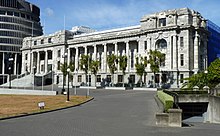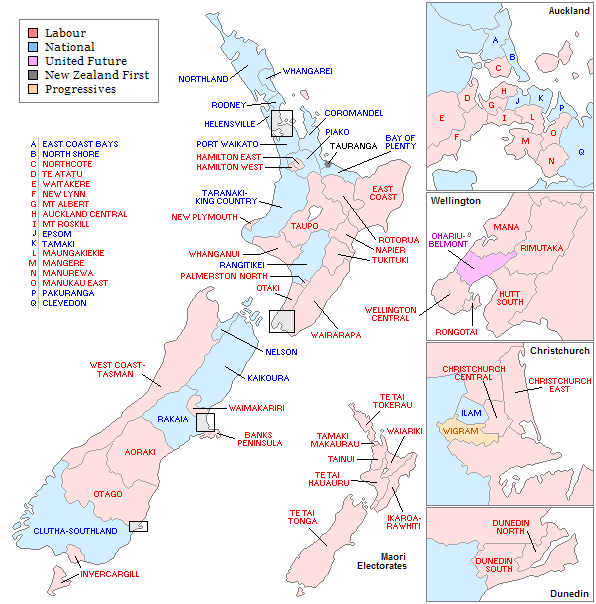| 47th Parliament of New Zealand | |||||
|---|---|---|---|---|---|
| |||||
 | |||||
| Overview | |||||
| Legislative body | New Zealand Parliament | ||||
| Term | 26 August 2002 – 2 August 2005 | ||||
| Election | 2002 New Zealand general election | ||||
| Government | Fifth Labour Government | ||||
| House of Representatives | |||||
 | |||||
| Members | 120 | ||||
| Speaker of the House | Margaret Wilson — Jonathan Hunt until 3 March 2005 | ||||
| Leader of the House | Michael Cullen | ||||
| Prime Minister | Helen Clark | ||||
| Leader of the Opposition | Don Brash — Bill English until 28 October 2003 | ||||
| Sovereign | |||||
| Monarch | Elizabeth II | ||||
| Governor-General | Silvia Cartwright | ||||
The 47th New Zealand Parliament was a term of the Parliament of New Zealand. Its composition was determined by the 2002 election, and it sat until 11 August 2005. [1] [2]
Contents
- Electoral boundaries for the 47th Parliament
- Overview of seats
- Initial composition of the 47th Parliament
- By-elections during 47th Parliament
- Summary of changes during term
- Seating plan
- As on 10 August 2004
- References
The Labour Party and the Progressive Party, backed by United Future, commanded a majority throughout the 47th Parliament. The Labour-led administration was in its second term. The National Party, although dealt a significant blow in the last election, remained the largest opposition party. Other non-government parties were New Zealand First, ACT, the Greens, and (from mid-2004) the Māori Party. [1]
The 47th Parliament consisted of 120 representatives. Sixty-nine of these were chosen by geographical electorates, including seven Māori electorates. The remainder were elected by means of party-list proportional representation under the MMP electoral system. [1]
